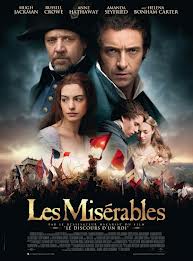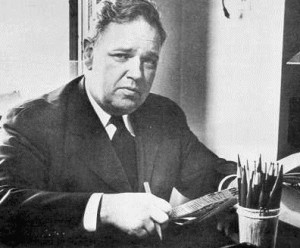One of the best movies I’ve seen in some time and one of my favorite historical subjects of study come together. First, the movie.
I saw Les Misérables a couple of weeks ago and have intended to write about it. Too many other pressing topics intervened. Yet it’s still around in theaters, so if I can encourage anyone else to see it who has neglected to do so, I will have performed a public service.
Too many other pressing topics intervened. Yet it’s still around in theaters, so if I can encourage anyone else to see it who has neglected to do so, I will have performed a public service.
At first, I wasn’t quite sure what to think of it, due to its graphic depiction of prostitution and the deeply seamy side of life. Yet even in the midst of all the depravity, it was clear the filmmakers were not glorifying that life. Anne Hathaway’s performance here was heartrending, particularly with her song. No one could come away from those scenes thinking this was the “high life.”
I concluded that it was essential to, in some way, make it clear how sin dehumanizes everyone involved with it. Only in that way could the real message of the movie—the wonder of God’s grace—be so starkly realized. The presentation of the good news always must begin with the problem, which is sin and its destructiveness. The contrast between the utter selfishness of the sinfulness portrayed in the film with the self-sacrificing love of Jean Valjean is breathtaking. For me, the high point of the movie was Valjean’s death, as we are led to understand he is being received into God’s presence through the love and mercy of Christ.
 I also recall that the book itself by Victor Hugo made a deep impression on Whittaker Chambers, who grew up in a household with no genuine Christian influence. Chambers, for those who don’t know, later became a communist, then broke from communism to speak prophetically about the loss of the knowledge of God in Western civilization. He found the book in the attic when he was no more than nine years old, and it opened a new world for him.
I also recall that the book itself by Victor Hugo made a deep impression on Whittaker Chambers, who grew up in a household with no genuine Christian influence. Chambers, for those who don’t know, later became a communist, then broke from communism to speak prophetically about the loss of the knowledge of God in Western civilization. He found the book in the attic when he was no more than nine years old, and it opened a new world for him.
I read and reread Les Misérables many times in its entirety. It taught me two seemingly irreconcilable things—Christianity and revolution. It taught me first of all that the basic virtue of life is humility, that before humility, ambition, arrogance, pride and power are seen for what they are, the stigmata of littleness, the betrayal by the mind of the soul, a betrayal which continually fails against a humility that is authentic and consistent.
I agree completely. That is what stood out in the movie as well—the centrality of humility to counter all the pride of man. Chambers continued:
I scarcely knew that Les Misérables was teaching me Christianity, and never thought of it that way, for it showed it to me, not as a doctrine of the mind, but in action in the world, in prisons, in slums, among the poor, the sick, the dying, thieves, murderers, harlots and outcast, lonely children, in the sewers of Paris and on the barricades of revolution. Its operation did not correspond to anything I knew as Christian in the world about me. But it corresponded exactly to a need I felt within myself.
My only quibble is that I don’t see the Christian worldview in the revolutionaries of the era; they were more incipient Marxists than Christians. But that is a quibble in comparison to the overall value of the dominant Christian theme. I always rejoice when the Christian message can be conveyed in a major production such as this, in a film that is not meant to be self-identified as a Christian movie, but one that reaches beyond to a much wider swath of the population. Chambers didn’t know he was being taught Christianity, and though that revelation was delayed many years, eventually he came to grips with the reality of God in his life. May the same happen to moviegoers today who are just seeking a good story. May the central message of that story—salvation through Jesus Christ—come as a revelation to them also, even if delayed.
